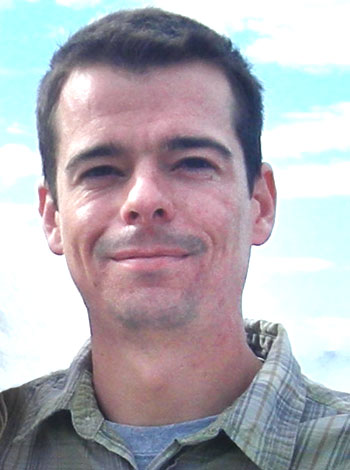Nash Unsworth
 University of Oregon, USA
University of Oregon, USA
http://maidlab.uoregon.edu/index.html
What does your research focus on?
My research focuses on working memory, attention control, long-term memory retrieval and individual differences in those processes. In particular, our work focuses on how individuals rely on attention to actively maintain information over the short term and how they retrieve information from long-term memory when that information could not be maintained. Furthermore, a major focus of our work is to examine individual differences in these processes and to determine how they are related to higher-order cognitive processes such as intelligence and reasoning.
What drew you to this line of research? Why is it exciting to you?
I have always been interested in how we retrieve information from our long-term memory system and why some individuals seem better able to access that information than others. Likewise, I have long been interested in various cognitive failures, such as lapses of attention and how they are related to other important constructs. Thus, it only seemed natural to combine these research areas.
Who were/are your mentors or psychological influences?
I have been fortunate to have had a number of exceptional mentors throughout my career. As an undergraduate at Idaho State University, Kandi Turley-Ames got me interested in working memory and individual differences and suggested that I work with Randy Engle at Georgia Tech. Without her initial guidance it is safe to say I would not be where I am currently. Randy Engle was the best graduate school mentor one could ask for. He was generous enough to take me in to his lab, where I learned how to conduct both basic experimental studies as well as large scale individual differences studies. Randy fostered a learning environment that allowed us to explore our own interests in a number of different fields, and he always encouraged us to think big. These basic characteristics are something I try to emulate with my students. Finally, while an assistant professor at the University of Georgia, Rich Marsh acted as a wonderful mentor to me. He not only showed me how to set up a productive lab, but he was also willing to discuss research ideas and help me to navigate departmental politics as a junior faculty member.
To what do you attribute your success in the science?
For the most part, my career has been a series of lucky breaks aided by the guidance of a cast of great mentors, collaborators, and students. In particular, collaborators such as Rich Heitz, Tom Redick, and Nate Parks have always been willing to discuss research ideas, read rough drafts of papers, and generally tell me when I’m wrong. I have also been fortunate to have been able to work with a number of great students including Gene Brewer, Greg Spillers, and Brittany McMillan, who are always pushing me to test our ideas in different ways and to really think more broadly about how the things we learn in the lab translate to the real world. In addition to lucky breaks, my parents always taught me that hard work will eventually pay off. As my dad always says, “If you see something that needs to be done, do it.
What’s your future research agenda?
Our future research agenda is to continue examining individual differences in working memory and attention control by examining how lapses of attention arise in different contexts and how these lapses are related to broad based measures of intelligence, reading comprehension, and reasoning. Additionally, in the past few years I have become increasingly interested in how individuals strategically search their memories by self-generating cues and how they use the products of retrieval to further specify the search process. Thus, we plan to better examine variation in retrieval strategies and how these strategies change dynamically throughout the search process.
Any advice for even younger psychologists? What would you tell someone just now entering graduate school or getting their PhD?
Like anything else, the harder you work the more likely you are to be successful. Thus, if you find something you like doing and have ideas that you find really interesting make sure to pursue them. At the same time, make sure to find some balance in your life so that you are appropriately mixing hard work with some form of fun and relaxation.
What publication you are most proud of or feel has been most important to your career?
Unsworth, N., & Engle, R.W. (2007). The nature of individual differences in working memory capacity: Active maintenance in primary memory and controlled search from secondary memory. Psychological Review, 114,104-132.
This paper stared off as a small research idea I had and then quickly became a way of integrating various ideas I had been working on. Randy Engle really encouraged me to build on these initial ideas and come up with a broader theoretical account. Much of my subsequent and current research is based off of ideas from this paper.





APS regularly opens certain online articles for discussion on our website. Effective February 2021, you must be a logged-in APS member to post comments. By posting a comment, you agree to our Community Guidelines and the display of your profile information, including your name and affiliation. Any opinions, findings, conclusions, or recommendations present in article comments are those of the writers and do not necessarily reflect the views of APS or the article’s author. For more information, please see our Community Guidelines.
Please login with your APS account to comment.